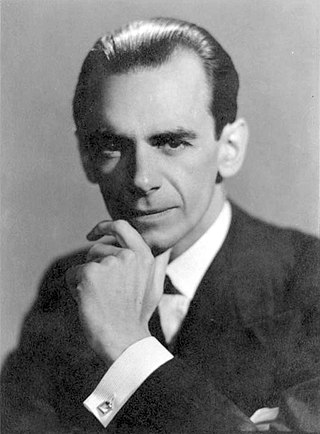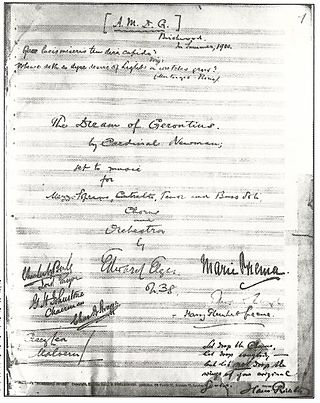
The Birmingham Triennial Musical Festival, in Birmingham, England, founded in 1784, was the longest-running classical music festival of its kind. It last took place in 1912.

The Birmingham Triennial Musical Festival, in Birmingham, England, founded in 1784, was the longest-running classical music festival of its kind. It last took place in 1912.



The first music festival, over three days in September 1768, was to help raise funds to complete the new General Hospital on Summer Lane. It proved to be very popular and successful, but it took another event in 1778 to achieve the funds required. The hospital opened September 1779.
From September 1784 the performances became a permanent feature and ran every three years, becoming the Birmingham Triennial Musical Festival, still with the aim of raising funds for the hospital.
Originally hosted in St Philip's Church (later to become the city's cathedral) or the Theatre Royal on New Street the available venues became too small for the festival. As a result, the Birmingham Town Hall was built, [1] and opened in 1834 to house it. The festival for 1832 was delayed by two years during its erection.
Vocal works were generally sung in English. Hans Richter was appointed principal conductor in 1885.

In 1837 Felix Mendelssohn conducted a performance of his St. Paul oratorio, played the organ, and played the piano part in the premiere of his second Piano Concerto, specially commissioned by the Festival. He appeared in the following festival, playing his first Piano Concerto. During that visit, he made a pen and ink sketch of the Town Hall. [2]
For the 1846 festival he composed and conducted the premiere of his oratorio Elijah , another new work commissioned by the Festival. He was paid 200 guineas. Elijah was played at every successive festival. Mendelssohn died a year later.
The Birmingham Festival Choral Society (still extant, in 2021) was founded in 1845, for the purpose of providing the chorus for the festivals, and sang at the premiere of Elijah. [3]

In 1873 the Festival commissioned Arthur Sullivan who composed his oratorio The Light of the World .
The 1879 Festival commissioned a work from Max Bruch, Das Lied von der Glocke.
In 1882 Charles Gounod was commissioned and produced Redemption , which was performed twice.
In 1885 Antonín Dvořák provided The Spectre's Bride and Gounod provided Mors et Vita .
In 1891 Dvořák's commission delivered his Requiem for £650.
1900 saw the commission The Dream of Gerontius from Edward Elgar. The chorus master, Charles Swinnerton Heap had died suddenly four months before the concert was due, and with ten works in hand and only one copy of the score, rehearsal started only a few days before the performance date. It was not sung well but was strongly applauded and well reviewed as a composition. Elgar returned in 1903 with The Apostles , and 1906 with The Kingdom . His commission for 1912 created The Music Makers , incorporating themes from the Enigma Variations , Gerontius, his violin concerto, and The Apostles. The principal conductor for 1912 was Henry Wood.
The 1909 and 1912 festivals ran at a loss, providing no donation to the General Hospital. World War I marked the end of the Triennial Festivals.

Sir Edward William Elgar, 1st Baronet, was an English composer, many of whose works have entered the British and international classical concert repertoire. Among his best-known compositions are orchestral works including the Enigma Variations, the Pomp and Circumstance Marches, concertos for violin and cello, and two symphonies. He also composed choral works, including The Dream of Gerontius, chamber music and songs. He was appointed Master of the King's Musick in 1924.

Sir Harold Malcolm Watts Sargent was an English conductor, organist and composer widely regarded as Britain's leading conductor of choral works. The musical ensembles with which he was associated included the Ballets Russes, the Huddersfield Choral Society, the Royal Choral Society, the D'Oyly Carte Opera Company, and the London Philharmonic, Hallé, Liverpool Philharmonic, BBC Symphony and Royal Philharmonic orchestras. Sargent was held in high esteem by choirs and instrumental soloists, but because of his high standards and a statement that he made in a 1936 interview disputing musicians' rights to tenure, his relationship with orchestral players was often uneasy. Despite this, he was co-founder of the London Philharmonic, was the first conductor of the Liverpool Philharmonic as a full-time ensemble, and played an important part in saving the Royal Philharmonic Orchestra from disbandment in the 1960s.

Birmingham Town Hall is a concert hall and venue for popular assemblies opened in 1834 and situated in Victoria Square, Birmingham, England. It is a Grade I listed building.

Elijah, Op. 70, MWV A 25, is an oratorio by Felix Mendelssohn depicting events in the life of the Prophet Elijah as told in the books 1 Kings and 2 Kings of the Old Testament. It premiered on 26 August 1846.

The Dream of Gerontius, Op. 38, is a work for voices and orchestra in two parts composed by Edward Elgar in 1900, to text from the poem by John Henry Newman. It relates the journey of a pious man's soul from his deathbed to his judgment before God and settling into Purgatory. Elgar disapproved of the use of the term "oratorio" for the work, though his wishes are not always followed. The piece is widely regarded as Elgar's finest choral work, and some consider it his masterpiece.
The Music Makers, Op. 69, is a work for contralto or mezzo-soprano, chorus and orchestra composed by Edward Elgar. It was dedicated to "my friend Nicholas Kilburn". It was first performed at the Birmingham Festival on 1 October 1912, conducted by the composer, with Muriel Foster as the soloist.

Johann Baptist Isidor Richter, or János Richter was an Austro-Hungarian orchestral and operatic conductor.
The Apostles, Op. 49, is an oratorio for soloists, chorus and orchestra composed by Edward Elgar. It was first performed on 14 October 1903 at the Birmingham Music Festival.
The Kingdom, Op. 51, is an English-language oratorio composed in 1906 by Edward Elgar. It was first performed at the Birmingham Music Festival on 3 October 1906, with the orchestra conducted by the composer, and soloists Agnes Nicholls, Muriel Foster, John Coates and William Higley. The dedication is "A. M. D. G." Elgar wrote The Kingdom for choral and instrumental forces.
The CBSO Chorus is a chorus based in Birmingham, England.

Edward Lloyd was a British tenor singer who excelled in concert and oratorio performance, and was recognised as a legitimate successor of John Sims Reeves as the foremost tenor exponent of that genre during the last quarter of the nineteenth century.

John Coates was a leading English tenor, who sang in opera and oratorio and on the concert platform. His repertoire ranged from Bach and Purcell to contemporary works, and embraced the major heldentenor roles in Richard Wagner's operas. For more than 40 years, with only a four-year interruption for military service during World War I, he overcame the limitations of a voice that was not naturally large by impressing listeners with his intense artistic expression, lively diction, musical versatility and memorable stage presence.

Frederic William Austin was an English baritone singer, a musical teacher and composer in the period 1905–30. He is best remembered for his restoration and production of The Beggar's Opera by John Gay and Johann Christoph Pepusch, its sequel, Polly, in 1920–23, and for his popularization of the melody of the carol The Twelve Days of Christmas. Austin was the older brother of the composer Ernest Austin (1874–1947).

Derby Choral Union is one of the UK’s longest standing choral societies having been formed in 1866. The choir was established to perform choral music of the highest quality, a tradition it strives to maintain to this day. The repertoire includes traditional choral works as well as music by 20th-century and more contemporary composers. Derby Choral Union is a registered charity and an independent choral society. It promotes concerts in Derby, England, and the surrounding district, and has over 100 active members.

The conductor Malcolm Sargent's career as a recording artist began in the days of acoustic recording, shortly before the introduction of the microphone and electrical recording, and continued into the stereo LP era. He recorded prolifically from 1924 until 1967, the year of his death.

Julius Buths was a German pianist, conductor and minor composer. He was particularly notable in his early championing of the works of Edward Elgar in Germany. He conducted the continental European premieres of both the Enigma Variations and The Dream of Gerontius. He also had notable associations with Frederick Delius and Gustav Mahler.
Classical music in Birmingham began in the late Middle Ages, mainly devotional music which did not survive the Reformation. Evidence is scant until the years following the Restoration of the Monarchy in 1660, when Birmingham's economy boomed. This was reflected in the scientific and cultural awakening known as the Midlands Enlightenment. The first sign of this transformation was the opening of the baroque St Philip's Church in 1715, which had a fine organ that attracted gifted musicians to the town.
Andrew Black was a Scottish baritone who was primarily known for his performances in oratorios and other works from the concert repertoire. He was particularly admired for his performances of Felix Mendelssohn's Elijah which he first performed at the Birmingham Triennial Music Festival in 1894. He made several recordings for His Master's Voice in London from 1901-1906 which are chronicled in volume one of The Record of Singing.
This is a summary of 1903 in music in the United Kingdom.
Joseph Moore (1766–1851), was a Birmingham benefactor best known for commissioning Mendelssohn to write his most famous oratorio Elijah (oratorio).